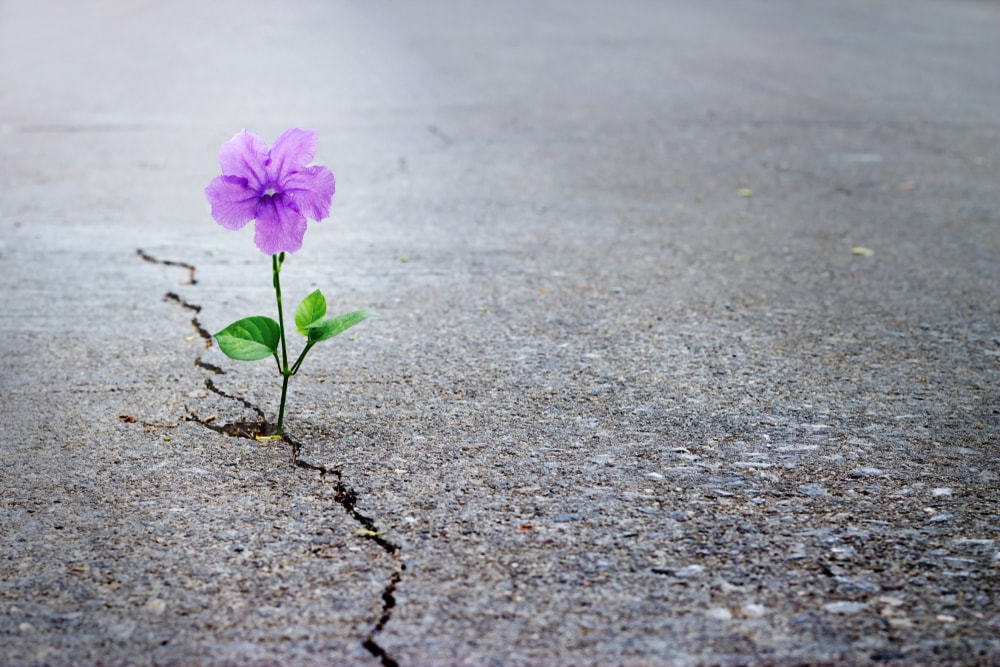There’s that old saying, “What doesn’t kill us, makes us stronger.” I used to cringe when I heard that statement. Now, I love it. I love it because it is true that through adversity and struggle we can become more connected with ourselves, with others, with our bodies. If an individual allows themselves to fully engage in the process of working through their struggles, whether that is trauma, addiction, or attachment issues, the person connects with a level of self-awareness and enlightenment that many others do not make the effort to achieve. I find this to be especially true when applied to those living with eating disorders and/or trauma.
The idea of growth is so relevant in the treatment of eating disorders, and I’m not just talking about weight. There is an anonymous quote I like to use – “The only way out is through.” The thing about having struggle is that if we are willing to muster up the strength to face it, we can come out stronger. To be clear, “stronger” doesn’t mean tougher; in this case, it is the sense that we can face the world in a more connected and meaningful way. Recovery is being mindful and engaged. It is being connected in a way that is impossible when the eating disorder is taking the lead or the trauma responses are primary. Through recovery, people realize that as they step away from their destructive coping, they can embrace life with a new view, a new way of relating to others; relationships become more meaningful. They make the time to connect more with their feelings in the treatment process, allowing themselves to fully engage in the world in an emotionally regulated way. When an individual processes the way they are responding to the world and their environment, they automatically become more connected with their sense of self.
When a person can let go of the need to hold onto a sense of control, they can begin to blossom in a world where they previously felt out of control. They become more in tune with their thoughts and feelings. With this new perspective, they can thrive. There is a sense of gratitude towards the body that develops; a person recognizes they are a human being, not a human doing. The person can often identify feelings of strength and self-resilience that they have never felt before. Patients that leave treatment often find new interests that they had never spent time and energy to consider; they sometimes establish a new life path, they re-evaluate priorities, and true healing occurs. Not only that, but when a person works through a traumatic event, they often find themselves better able to withstand future struggles.
Psychological stress, whether a trauma or an eating disorder, is an opportunity for an individual to flourish. It is an opportunity for them to take something so destructive and negative, and process it so that it can be used to re-establish oneself in the world in a different way, one that is more meaningful and resilient.

